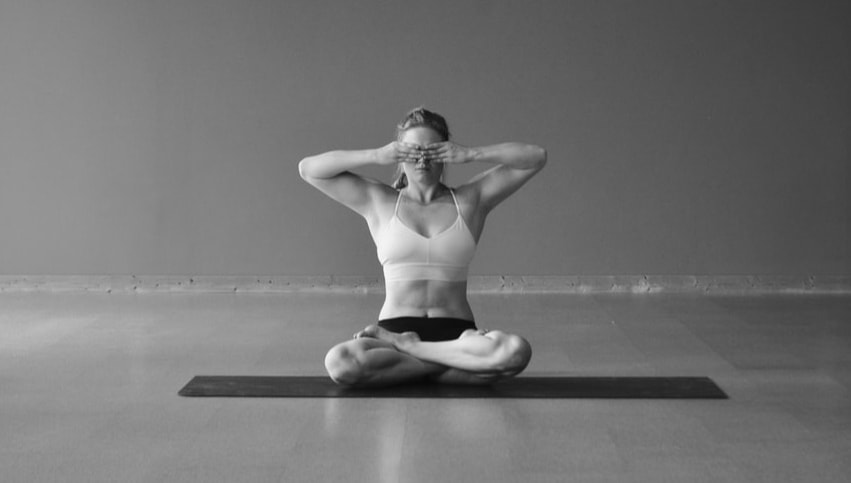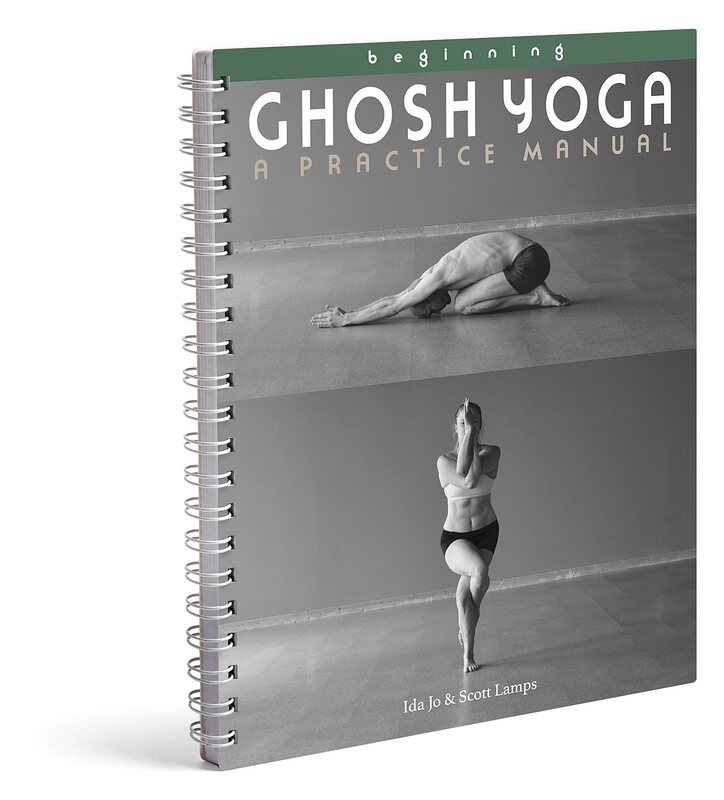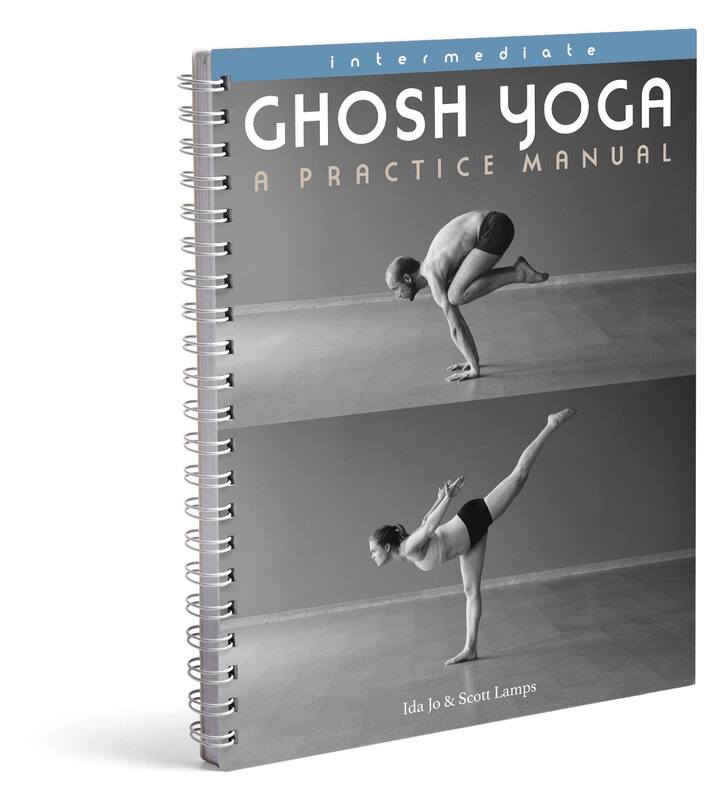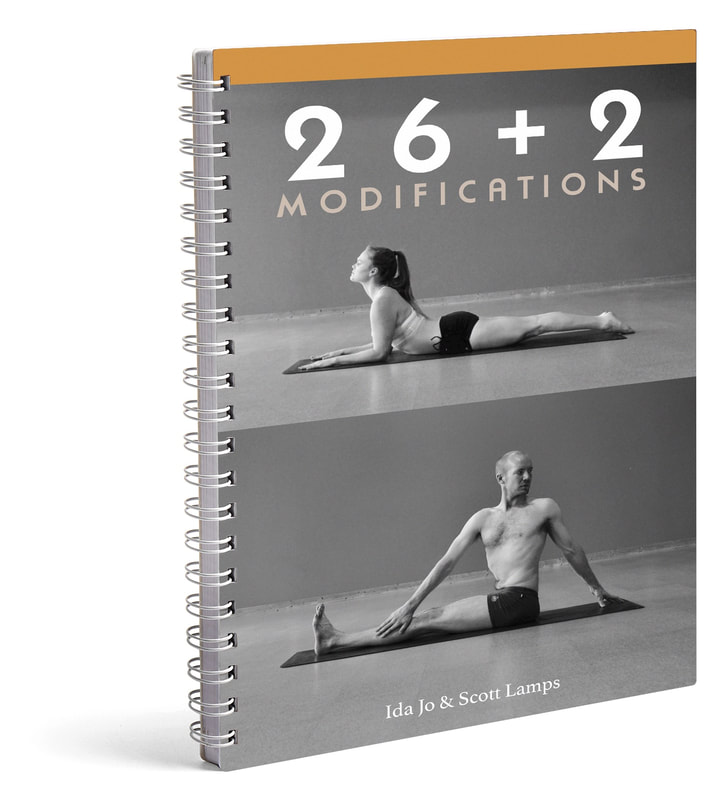|
In the early verses of the Hatha Yoga Pradipika, one of the most important and comprehensive texts of hathayoga, six obstacles of yoga are listed.
"Yoga perishes by these six: overeating, overexertion, talking too much, performing needless austerities, socializing, and restlessness." (1:15) Let's take a closer look. OVEREATING It is interesting that overeating is listed as the first obstacle, especially considering our current culture's all-encompassing obsession with food, health, fitness, etc. Let's try to look at it from a yogic perspective. As we progress in our practice, we improve our awareness of the different energies in the body. One of these energies---a very strong one---is the downward energy stimulated by eating and digesting. Yogically speaking, this function of the body overpowers the other energies including the upward energy of the breath and (according to some) spirit. You may notice that you feel heavy after you eat. Also you have to go to the bathroom. These forces make it difficult to have a useful meditation. OVEREXERTION Avoid overexertion. This is an instruction that is often overlooked as yoga practices become more physical and greater exertion is encouraged. Overexertion applies to both physical and mental practices. Since the goal of yoga is generally balance and unity, we seek a middle path. Moderate exertion. When we put lots of effort into something, even if it is our yoga practice, we are actually getting farther from our goal which is balance. TALKING TOO MUCH In a practice that is as inwardly focused as this, any talking is a distraction. Talking is always outwardly focused, and it draws the mind away from its purpose of inward awareness. Of course, a certain amount of talking and interaction is necessary to function in the world. But this instruction reminds us to limit our talking, as it directs the mind in ways that are damaging to a yoga practice. PERFORMING NEEDLESS AUSTERITIES This instruction is related to the one about "overexertion." The practitioner should not get too caught up in the rituals, rules and doctrines of the practice. Regulations offer guidance and structure, but it is easy to become obsessed about their performance. Unless we are careful, before too long the entirety of our practice is simply the performance of ritual and austerity. Since the path of yoga is a journey toward balance, we must beware of any step toward extremism, even in the name of ritual or tradition. SOCIALIZING On first glance, this instruction seems similar to the one about "talking too much." Another translation clarifies, "being in the company of common people." "Gossiping with people who have low morals, base consciousness and sensuous desires cannot enlighten your soul, rather, their negative vibrations may influence you. Social situations and irrelevant discussions definitely distract the mind from [yoga practice]." (1) On its face this explanation seems elitist, but it is absolutely true. We like to pretend that our company and conversations have little or no impact on who we are or what we think, but they have a profound impact on our thoughts and actions. When we pretend that these things don't matter, it is simply because we are placing something else---like politeness or another's opinion of us---in higher importance than the well-being of our own thoughts. It is also possible that we are not aware of the impact on our thoughts. RESTLESSNESS This is perhaps the most obvious of the obstacles. Restlessness comes in many forms: an active mind, easy distraction, a fidgety body, impatience, lack of persistence, etc. It is easy to see how these things prevent us from progressing in our practice. This is why so many of the beginning practices of yoga are designed to remove restlessness, build attention and focus. 1. Hatha Yoga Pradipika, p.52. Commentary by Swami Muktibodananda.
2 Comments
|
AUTHORSScott & Ida are Yoga Acharyas (Masters of Yoga). They are scholars as well as practitioners of yogic postures, breath control and meditation. They are the head teachers of Ghosh Yoga.
POPULAR- The 113 Postures of Ghosh Yoga
- Make the Hamstrings Strong, Not Long - Understanding Chair Posture - Lock the Knee History - It Doesn't Matter If Your Head Is On Your Knee - Bow Pose (Dhanurasana) - 5 Reasons To Backbend - Origins of Standing Bow - The Traditional Yoga In Bikram's Class - What About the Women?! - Through Bishnu's Eyes - Why Teaching Is Not a Personal Practice Categories
All
Archives
May 2024
|







 RSS Feed
RSS Feed